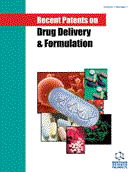Abstract
Less than 8.5% of ischemic stroke patients receive clot-busting drugs within the narrow time needed to reduce injury. Thus, there is need for an easily-accessible delayed post-stroke drug treatment to improve functional recovery. Various combinations of fluoxetine, simvastatin, and ascorbic acid were given to healthy rats to assess impact on neurogenesis versus controls. Fluoxetine combined with simvastatin and ascorbic acid produced a 19-fold increase in neurogenesis versus controls in healthy rats; fluoxetine alone produced 10-fold increase.
We next tried a couple of drug combinations versus control in endothelin-induced stroked rats. Combined fluoxetine/ simvastatin/ascorbic acid treatment, given to stroked rats 20-26 hours after stroke induction and continued for 31 days, produced strong recovery as measured by Montoya staircase test (mean recovery to 85% of pre-stroke function) and Forelimb Asymmetry test (mean recovery to 90% of pre-stroke function). Fluoxetine and ascorbic acid without simvastatin only produced ~50% of recovery produced by the 3-drug combination.
Our results indicate that combined treatment of Fluoxetine, simvastatin and ascorbic acid represents a promising delayed stroke treatment that greatly improves functional recovery in rats and warrants further study in human patient populations. This work formed the basis for a patent submission (US20130065924A1) Composition and method for treatment of neurodegeneration.
Keywords: Ascorbic acid, endothelin, fluoxetine, forelimb asymmetry, ischemic stroke, montoya staircase, neurogenesis, simvastatin.
Graphical Abstract
 25
25 2
2 1
1










